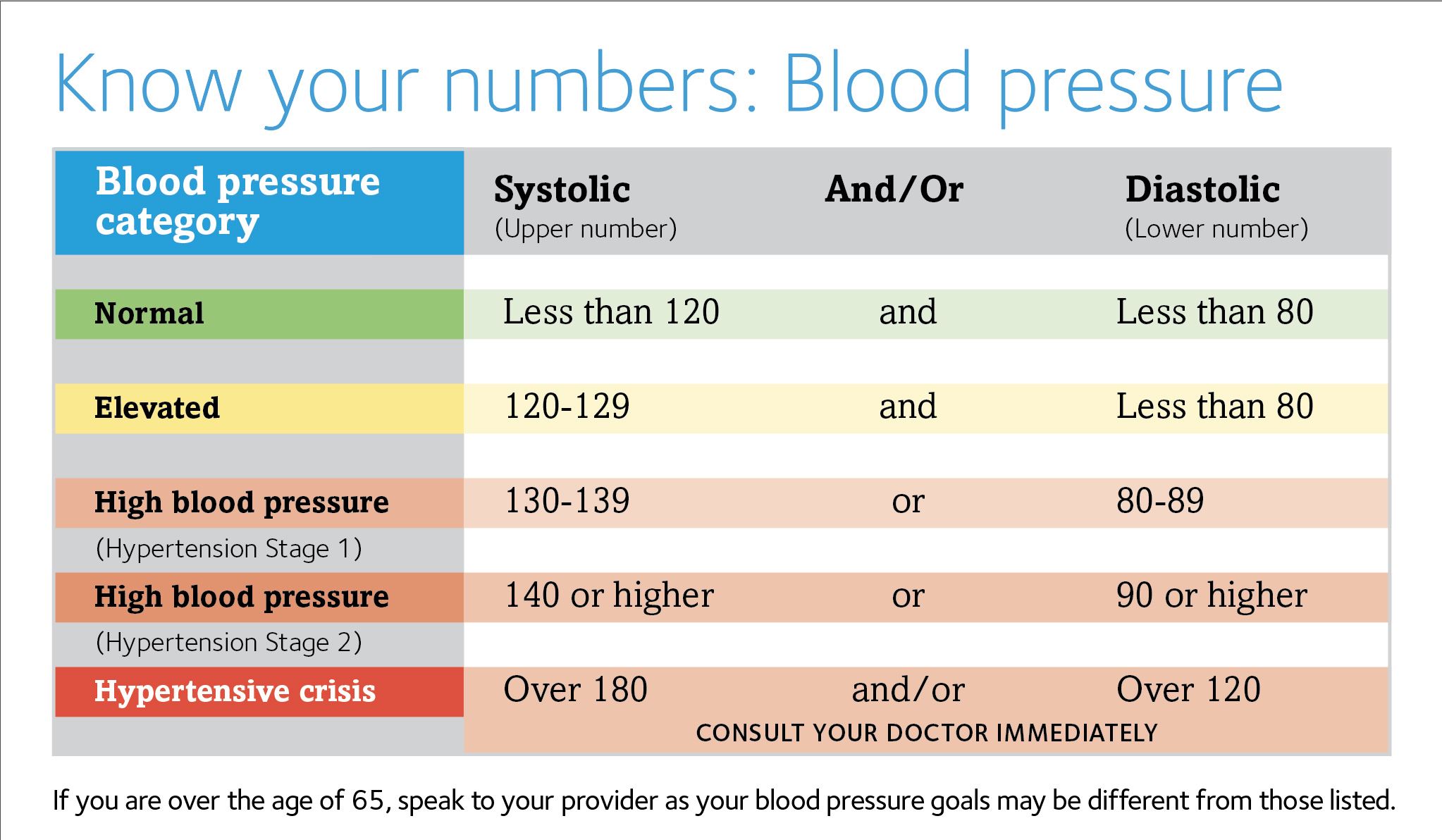
Blood Pressure: What Do the Numbers Mean and Why Do They Matter?
Each time you go to the doctor, you get a blood pressure reading. You know the drill: a nurse places a cuff around your upper arm. The cuff squeezes, putting pressure on your arm, and slowly releases.
Your blood pressure gives your doctor information about your overall health, as well as your health risks. But what do the numbers actually mean? And how does high blood pressure affect your health?
What do the blood pressure numbers mean?
When you get a blood pressure reading, you’ll see two numbers. The first number is your systolic blood pressure. Systolic blood pressure refers to the pressure in your artery walls when your heart contracts (beats). The second number is your diastolic blood pressure. This number refers to the pressure in your artery walls when your heart rests between beats.
In general, the first number, your systolic blood pressure, gives your doctor the most information about your risks for heart disease. Over time, systolic blood pressure can go up as people get more plaque buildup and their arteries stiffen. So higher systolic blood pressure can indicate increased damage and increased heart disease risk.
But your diastolic blood pressure is also important. If you are between ages 40 to 89, both your stroke and heart disease risk double with every 10 mm Hg increase in diastolic blood pressure.
Knowing your own numbers

Your blood pressure reading shows your systolic and diastolic blood pressure as two numbers with a slash between them. If your blood pressure is below 120/80 mm Hg, you are considered within the healthy, normal range. If you have normal blood pressure, continue to stick to healthy lifestyle habits like exercising regularly, eating a heart-healthy diet and managing stress.
If your blood pressure falls outside of the normal range, your healthcare provider may speak with you about cardiovascular treatment.
- Elevated blood pressure is when your systolic blood pressure is consistently between 120-129 mm Hg, but your diastolic blood pressure is still within normal ranges. Your provider will likely advise that you increase heart-healthy lifestyle choices to lower your blood pressure and prevent hypertension (high blood pressure).
- Hypertension stage 1 is when both your systolic and diastolic blood pressure are consistently elevated. Your treatment may start with lifestyle changes. Your provider may prescribe blood pressure medications, especially if you have other risk factors for heart attack or stroke.
- Hypertension stage 2 is when your blood pressure is regularly 140/90 mm Hg or higher. If you have stage 2 hypertension, your provider is likely to prescribe medications along with recommending lifestyle changes.
- Hypertensive crisis is a quick, severe increase in blood pressure that requires immediate medical attention. If your blood pressure is above 180/120 mm Hg, contact your healthcare provider right away. If you also experience symptoms such as chest pain, back pain, shortness of breath or difficulty speaking, call 911.
Why is it important to manage your blood pressure?
Chronic high blood pressure significantly increases your risk of other diseases like kidney disease, heart failure and stroke. And when it comes to heart disease, managing your blood pressure is the most important risk factor that you can control. Hypertension is more common that smoking, diabetes or high cholesterol.
Whether your blood pressure falls within normal ranges, is slightly elevated or if you have high blood pressure, some lifestyle changes can help you improve your numbers. The main tenets of managing your blood pressure and heart health include:
- Diet. Eat three meals per day with an emphasis on whole grains, fruits, vegetables, lean proteins and healthy fats. The fewer processed and sodium-filled foods you eat, the better. Drink plenty of water and limit your intake of sugary or caffeinated beverages.
- Exercise. Strive for 150 minutes of cardiovascular exercise per week. For most people, this looks like five 30-minute sessions of aerobic exercise, such as brisk walking, dancing, high-intensity weight training or cycling.
- Stress. Reduce stress with healthy coping techniques such as meditation, talk therapy or exercise. Additionally, aim for at least seven to eight hours of sleep per night for optimal stress management.
Optimize your heart health and know your blood pressure numbers by getting a check-up with a healthcare provider. Find a provider near you today.



